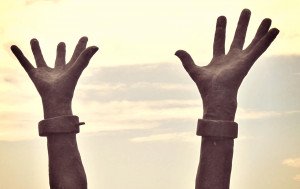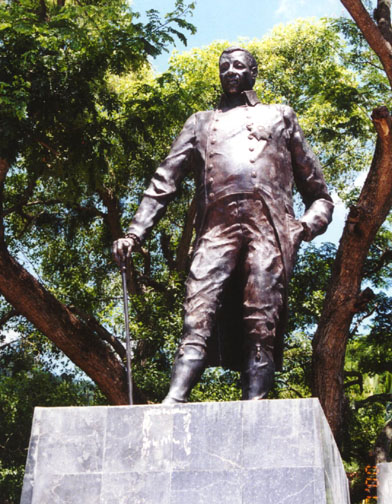|
Getting your Trinity Audio player ready...
|
Reading Time 5 mins
Presented to the Annual Commemorative Emancipation Public Lecture Series of the Institute for People’s Enlightenment, UWI Open Campus, St. Georges, Grenada, July 2019.
“I am not an African because I was born in Africa, But because Africa was born in me.” – Kwame Nkrumah

Emancipation can be explained as an unfinished process of physical and psychological liberation of the enslaved persons of African descent, who had been forcefully taken by their European colonisers – mainly the British, French, Spanish and Dutch. Africans were forcibly taken from their homes especially along the western and central region of Africa, and also brought from the interior provinces in the coffles of human cargo, making its way towards the coastal points to meet the ships.
For over three hundred years, on a continual basis, our Ancestors were brutally branded and transported, shackled in irons and lodged in the hold of ships for weeks until arrival in the colonies. They were then placed on the auction block and sold to the highest bidders, to provide labourers for the various plantations in the New World colonies, growing cotton, tobacco, rice and sugar cane.
It is important to note, that Emancipation came about as the result of economic factors rather than for humanitarian reasons, and that capitalism was the prime motive as slavery had become a hindrance to the total transformation of the old economic British system.
The only group in the West Indies that maintained a consistent anti-slavery attitude, was the slaves themselves, in their collective and individual forms of resistance, as they devised new ways and means of subverting the system. The Revolution in the French Caribbean, in St. Domingue 1792, was a phenomenon in itself; it shattered the contending images of Black people projected by the anti-slavery and pro-slavery campaigns, and sent a searing jolt throughout their ranks.

Kudos to Henri Christophe, Dessalines and Toussaint L’Ouverture for their roles in the rebellion to confront slavery, with their motto: Liberty or Death!
The self-emancipated Blacks in Haiti were eventually able to defeat three of the best armies in Europe and created the First Black Republic in the New World in 1804… Ase1! Ase! It must be mentioned in contrast, that if the British effort to wrest St. Domingue from the French had met with success, they would never have abolished the slave trade when it did in 1807.
The abolition of the British slave trade occurred, significantly, three years after the retreat. With the French loss, Napoleon had abandoned his quest to form a new American empire, and had withdrawn to the European continent. With the market for enslaved Africans in Haiti lost forever to European nations, and the British West Indies seemingly ‘saturated’, Britain’s economic attention shifted, as it was now safe to end the British trade in Africans with a minimum of economic dislocation to their planters. CLR James so keenly observed, “Everybody conspired to forget the slaves.”
2020 marks the celebration of one hundred and eighty-two (182) years since Emancipation for the descendants of the enslaved. In the twenty-first century it is nearly impossible for many of the children of the enslaved to even conceive, lest vaguely remember their Ancestors from more than two generations ago.
They cannot feel the blood as it throbbed in the veins of the enslaved, with frustration and inertia from defeat of many insurrections that never can be called revolutions. With a combination of the loss of interest perpetuated by others from the rich and powerful, the younger persons no longer value the importance of history, nor cultural traditions. They could not imagine the type of enslavement known as chattel slavery, as not one enslaved person had choice, and could be bought and sold according to the whims and fancies of their owners.
That first Emancipation morning of August 1st 1838, in all of the British colonies, over 800,000 enslaved persons gained their freedom. The morning broke with the tolling of the bells, as many went to chapels and churches to give thanks that they saw the day finally come that they gained liberty. Surely troops were still on hand to quell any disturbances that might occur, but according to the reports, nothing untoward happened, showing an example of decorum and composure. In the evening time, there was some gaiety and festivities to celebrate the non-violent day, thus closing on a high note.
Those amongst the older ones who still remember, pay homage and tribute to many of the key local and regional Emancipators, with libations of white rum, and whisper their names in the cold darkness, those who valiantly fought and strove for freedom. To Julien Fedon, Ase! Toussaint L’Ouverture, Ase!
Lest we forget, the contribution made to overthrow slavery and colonialism, actions that are still largely unknown and unacknowledged today. As times change fleetingly, the former days of rebellion and leadership fade, and catharsis remains a faint memory…
Up to the present, the dispute has never been settled over the numbers of Africans taken from the Motherland and sent to the colonies from the 1700s – as it would be near impossible to keep account of the stench of numerous bodies in the coffle of human cargo, making its way towards the coastal points of west and central Africa. Those who were too sick or too old, as well as those who died during the Middle Passage and were thrown overboard must also be counted.
There has been a comparable difference in calculations of the numbers of Africans that were taken from Africa which were deliberately skewed or concocted by a faction of modern historians.
The criminality of this trade perpetrated by the Europeans, through the continuous raping of Africa of its people for over four hundred years, has conclusively caused the underdevelopment of that continent. In truth and in fact, Europe must take responsible for the present state of affairs of Africa and by extension, the Caribbean. Europe, cognisant of their immoral and inhumane accountability, now fear that that they will be brought to book, and try hard to evade the legal reparations of that ignoble trade, when translated into dollars and cents.
The relevancy of Emancipation has been symbolized in every island territory with commemorative statues, paintings and sculptures in places of importance, and on Emancipation day, people gather to remember those who fought and died that we might survive, and live… but one statue we associate with the arrival of immigrants to Ellis Island was never true. According to history, this image of over 300 feet, was originally inspired to mark the importance of the Emancipation of the slaves in America. This gift from France in 1886, shows Lady Liberty with the torch in her right hand, illuminating the world, but few ever look to see the broken shackles beneath her feet, of the slaves she truly represents.
Every year till eternity, Emancipation must be a day of reflection and celebration for all the generations following, as they must always remember from whence we all come. Lest we forget our history, our traditions and rituals and the enslaved come back to haunt us in dreams and visions, when memory and effectual prayer wake us from sleep and we call our Ancestors, by name, and with thankful offerings … Ase! Ase!
1 Ase .. a Yoruba word for affirmation, agreement, a positive expression to honor ancestors like “Yes, Yes” or “Ture, True”
Editha (Nancy) Fergusson-Jacobs Ph.D. July, 2019
Tag: #EmancipationDay #BlackHistory #CaribbeanHistory
